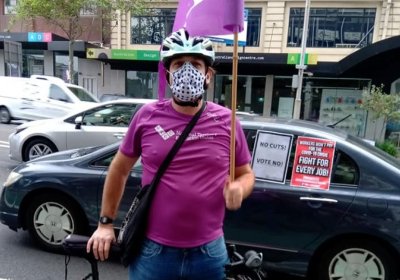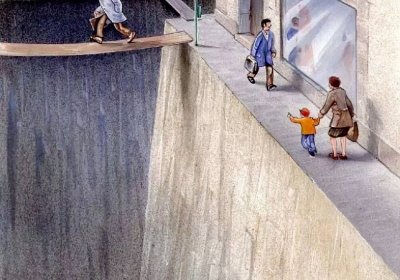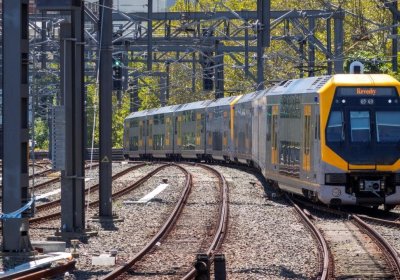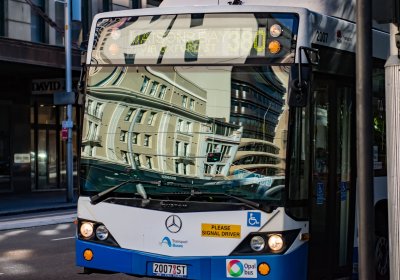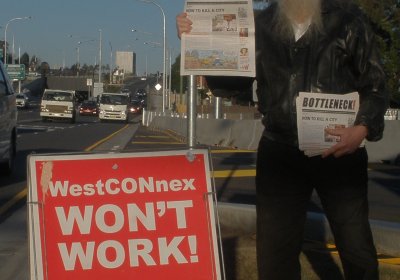Andrew Chuter, a member of the NTEU National Council and the Socialist Alliance, explains why he supports the union taking a more combative stand aimed at the federal government to provide funding to universities to save education workers' jobs.
Andrew Chuter
The absence of cars in our car-dominated cities in the COVID-19 pandemic reminds us that we need green space and mass transit, argues Andrew Chuter.
Despite promises to the contrary, the New South Wales government looks set to privatise the remaining 49% of the WestConnex motorway, reports Andrew Chuter.
The superannuation system is under increasing scrutiny from climate activists as much of its funds are invested in climate-damaging companies, writes Andrew Chuter.
Community groups and transport experts have spoken out about the wrong-headedness of dismantling the existing public Sydenham to Bankstown rail line service only to replace it with a privately-run service.
In a time of climate crisis, Sydney needs to urgently improve its public transport system — not privatise it.
More than 200 people attended a protest at Sydney Town Hall on October 12, organised by Rojava Solidarity Sydney and the Democratic Kurdish Community Centre (NSW). The protest was part of a global day of action against Turkey's genocidal invasion of North and East Syria.
A minor mechanical fault on a train at Town Hall station caused an entire day of delays across Sydney’s rail network on August 23. Rather than being an exception, the incident was just the latest chaos to hit Sydney commuters.
The upcoming NRMA election of directors is shaping up to be a referendum on the WestConnex tollroad, according to Peter Hehir, one of the two candidates contesting the Harbour Region.
Satellite imaging analysis released for the first time on March 13 shows much greater ground settlement and potential property damage from WestConnex tunnelling than predicted by the NSW Coalition government and the environmental impacts statements for the project.
Empire of the Tsars: Romanov Russia
Three part series presented by Lucy Worsley
Available on SBS On Demand until October 10
This three-part series examines the history of Russia’s most famous royal family, the Romanovs. This is a useful introduction to a topic for those wanting to know more about the conditions that led to the 1917 Russian Revolution.
The Romanovs rose to power in 1613 after the collapse of the previous Rurik dynasty that ruled Russia for 700 years. The tsars were absolute monarchs with enormous power.
Another fundamental liberty of the people of New South Wales took a hit on July 1.
On that day a new regulation under the Crown Land Management Act 2016 took effect, granting the NSW government wide powers to disperse or ban protests, rallies and virtually any public gathering across about half of all land across the state.
The powers apply on any Crown Land — land owned by the state government, including town squares, parks, roads, beaches, community halls and more.
- Previous page
- Page 4
- Next page
